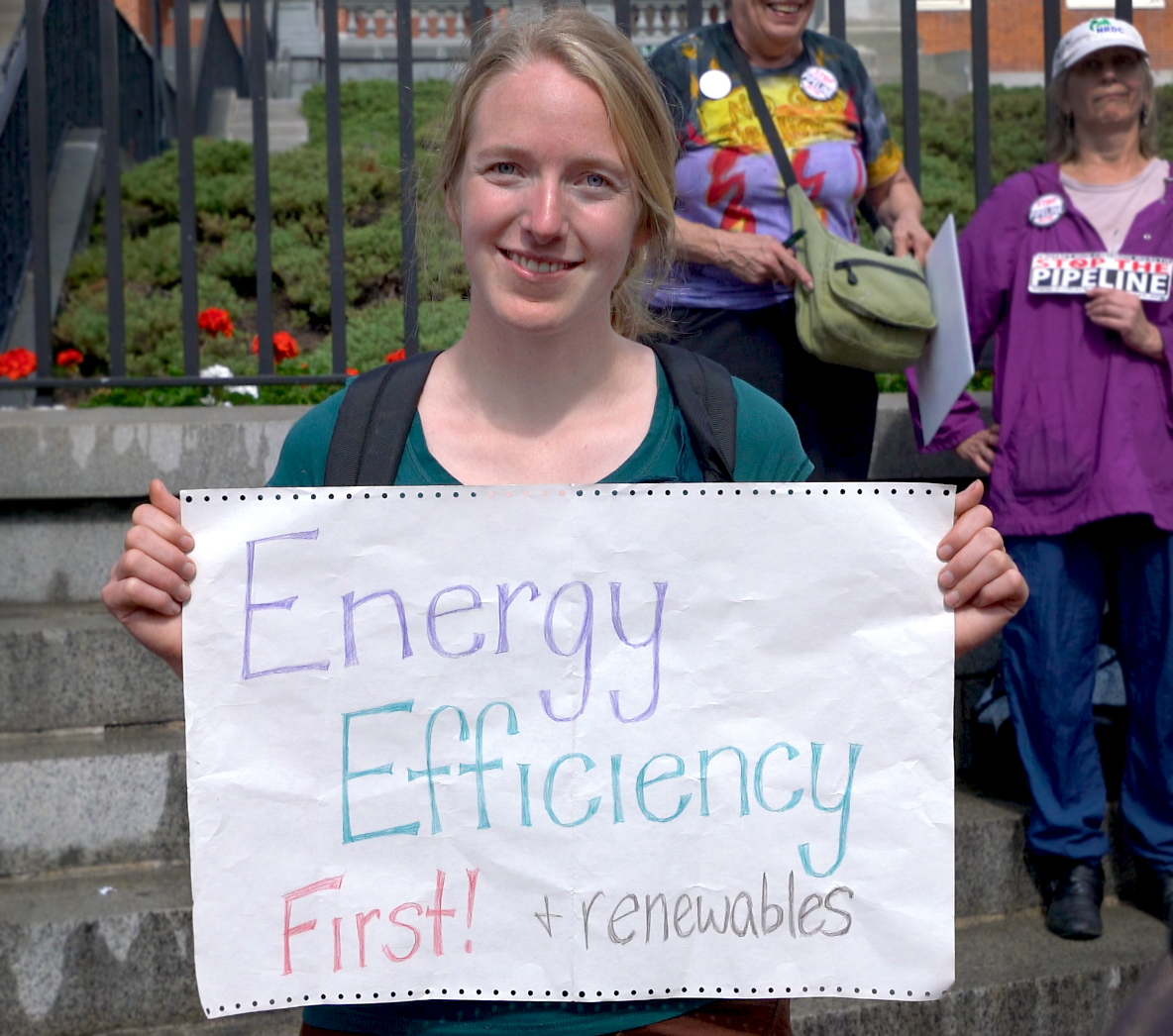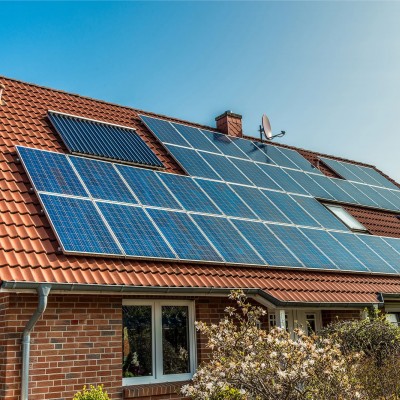State House Solar Hearing Draws Huge Crowd
Renewable energy advocates and supporters, many from the Mass Power Forward coalition, rallied outside the State House on Tuesday before packing the Gardner auditorium for an energy hearing.
Governor Charlie Baker testified before the committee telling lawmakers that he wants to meet 2020 emissions goals while driving down energy costs by diversifying the Commonwealth’s energy portfolio to include more hydro, wind, solar, and natural gas. The Baker administration has introduced separate hydropower and solar bills.
 Speaking about his hydro legislation, Baker said, “Absent timely passage of this proposal and the incorporation of at least 1,200 megawatts of hydropower into our generation mix, it will be very difficult to meet our 2020 goals, which I want to meet.”
Speaking about his hydro legislation, Baker said, “Absent timely passage of this proposal and the incorporation of at least 1,200 megawatts of hydropower into our generation mix, it will be very difficult to meet our 2020 goals, which I want to meet.”
Baker spoke extensively about hydropower that would likely be imported from Canada and the importance of natural gas, which will require new pipeline construction.
Sen. Marc Pacheco of Taunton criticized Baker’s plan saying that incentivizing hydro and building new gas pipelines makes it hard for a still budding local clean energy industry to compete, costing the Bay State clean air and jobs.
“It’s not just in the price, it’s in the clean air and it’s about creating jobs here,” Pacheco said.
Solar energy advocates are criticizing Baker’s bill, saying that it won’t raise net metering caps enough so that the state can reach it’s 2020 goal of producing 1600 MW of solar energy a year. See MassSolar’s assessment of Governor Bakers solar bill here.
Net metering caps have been reached in National Grid territory, putting the brakes on shovel ready solar projects in 171 communities. Baker’s plan would only raise the cap for a few months, adding only 0.2 percent of solar energy to the states energy mix.
Baker said that he is in favor of solar power, but he wants to cut back state solar subsidies once the target of 1,600 MW is reached. Solar users are currently paid around 15 cents a kilowatt-hour for electricity sold back to the grid. Baker’s bill would continue to pay residential solar users that price, but government installations would see their payments fall to about 8 cents per kilowatt-hour and large-scale, non-governmental solar installations would only be paid about 3 cents.
In a letter addressed to the committee, MassSolar said, “The state’s solar industry needs strong solar legislation that encourages growth. Baker’s bill would effectively destroy solar in Massachusetts.”


